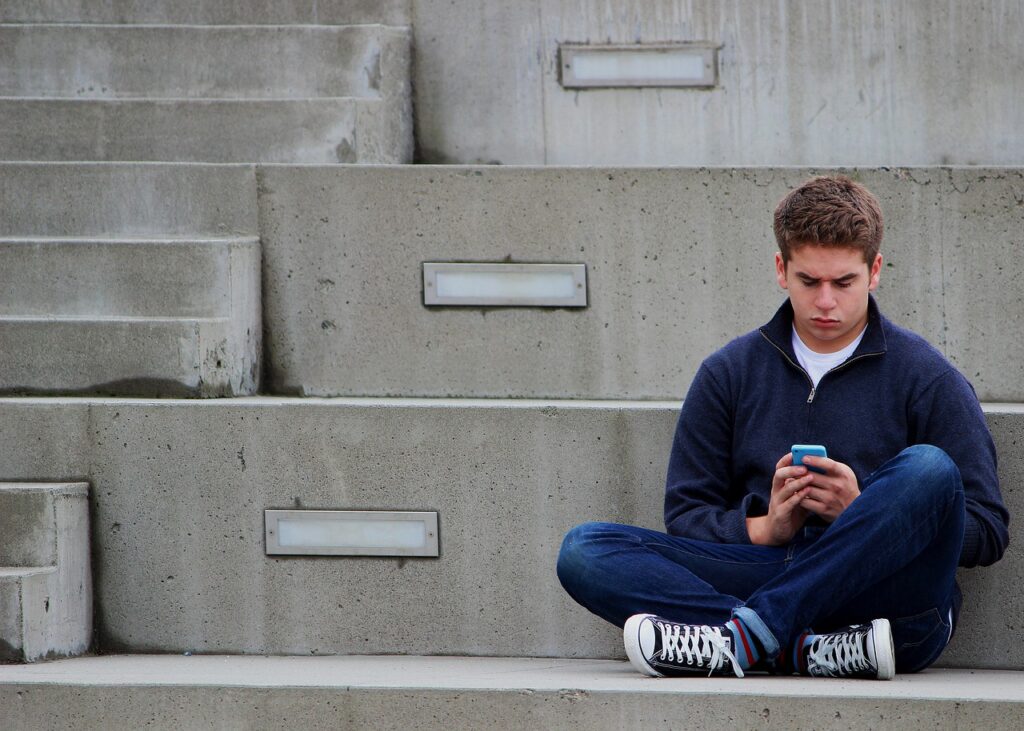
Are your teens depressed? Are they also on their phones for so many hours you can no longer count?
Jonathan Haidt explores those issues in his new book, “The Anxious Generation.”
First some numbers: According to the National Alliance on Mental Illness, American kids ages 6 to 17 experience a mental-health disorder each year, 50% of all lifetime mental illness begins by age 14, and suicide is now the second-leading cause of death among kids from 10 to 14.
In his book, Haidt – a psychologist at NYU – blames what he calls “the great rewiring” for the mental anguish of today’s teens that began when Gen Zers – those born after 1995 – were in their teenage years. (The opinions expressed by the author are his and not those of The Sun.)
The “rewiring,” he explains, happened in the formative years of that generation between 2010 – when fewer teens had cell phones – and 2015, with the advent of Instagram, Tik-Tok, selfies and the like. To Haidt, it was the beginning of what he calls a “phone-based childhood” instead of a “play-based” upbringing.
As kids, he opines, parents of Gen Zers could be outside all day without constantly being watched by adults. But as modern paranoia set in about things like stranger danger and unsupervised play – often amplified by the media – more kids moved inside and toward the isolation of the internet, often without the same level of “helicopter” parenting.
Haidt calls that “overprotection in the real world and underprotection in the virtual world,” and theorizes that spontaneous group play – where kids learn socialization and the ability to problem solve – is often missing these days.
“Overprotective parents try to control their child’s actions, academics, friendships and responsibilities,” writes Nicole Arzt at choosingtherapy.com. “While they want to ensure their child’s well-being, their efforts can be intrusive and detrimental to childhood development.”
“Gen Z became the first generation in history to go through puberty with a portal in their pockets,” Haidt writes in his book, “that called them away from the people nearby and into an alternative universe that was exciting, addictive, unstable and unsuitable for children and adolescents.”
A Mayo clinic survey showed that while 20% of kids spent time outdoors weekly in 1997, by 2003, the number had dropped to 10%. That’s too bad, because spending time outdoors in green spaces has been linked with both physical and mental-health benefits, according to Heather Eliassen of the Harvard T.H. Chan School of Public Health.
“(Time spent outdoors) provides a combination of stimulation of different senses and a break from typical overstimulation from urban environments,” she explained. “Exposure to green space results in mental restoration and increased positive emotions and decreased anxiety and rumination. Improved mindfulness can result from exposure to green space as well.”
Haidt believes that “parents should become more like gardeners, who cultivate conditions for children to independently grow and flourish, and less like carpenters, who control, design and shape their offspring.”
He also believes that the easiest, fastest and least controversial way to make kids less anxious is to prohibit phones in school. Do you agree? Tell us your thoughts by sending a letter to the editor to the email address at the right.



